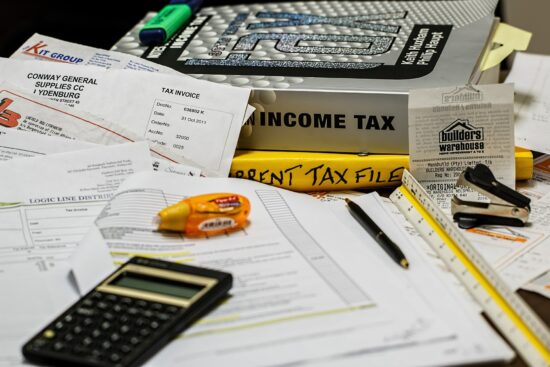by Jenny Smedra

I dread tax season every year. By the time April rolls around, I am usually a giant ball of nerves until I send off my tax return. Although filing taxes is stressful, it became an even more daunting task when I worked overseas. Unfortunately, not only do I need to file in both countries this year, but it looks like I will also be paying twice. Since this is the first time I owe the IRS, I am getting a firsthand education in how to pay your tax debts.
Filing Taxes as a Foreigner Abroad
As an American citizen abroad, I have had to file taxes in two countries for the last ten years. Dealing with bureaucratic paperwork will always be a headache. However, this year is going to be extra complicated since I have had foreign and domestic income on the same return.
Filing in the U.S.
In the past, I met the qualifications for the Foreign Earned Income Exemption. This tax law states that foreign income up to the set threshold ($107,600 for 2020) is exempt from taxation. You are able to claim this if you are a resident of another country or pass the physical presence test. Since I met both requirements until 2020, I avoided double taxation and never owed the IRS money.
Filing in Taiwan
As a resident of Taiwan, I paid a flat taxation rate. Every May, I made the short trip to the tax bureau and filed in person. It only took about 15 minutes for the representative to check my paperwork, get copies of my IDs and bank information, and send me on my way.
However, this year I won’t be able to make it back due to strict travel restrictions. That means I will have to navigate their website and hope the Google translation from Chinese will be easy to follow.
Filing with Dual Income
Since I returned home in the middle of the fiscal year, I will need to file and pay taxes in both countries for 2020. To add another layer of complexity, my filing status is also changing because I now work as an independent contractor. In addition to Taiwan’s flat tax rate, I will also need to pay the Self-Employment Tax.
Although I know I will owe the IRS this year, I cannot determine how much until I receive income statements for both sources of income. However, I can only file my Taiwanese taxes online between May 1 and May 31. Since the American tax deadline comes first, I found myself in a bit of a bind. So, I decided to get professional advice to navigate the situation.
Deciding What to Do When You Owe Money in Two Countries
Right now, I have questions and a return far beyond my knowledge of taxation law. So, I consulted a CPA who specializes with clients that have overseas financial concerns. After a brief phone conference, I had a much clearer picture of what to do. Since I am still waiting on documents, we decided it was best to file for an extension. Now, I can complete my Taiwanese taxes first and have all the official documents to pay what I owe the IRS. Going forward, he also suggested a quarterly payment schedule to get ahead of the self-employment tax as my income increases.
What to Do When You Owe the IRS
Even though I owe money to the IRS, there is some good news. They provide several options to resolve your tax debt. Based on my financial situation, here are the three best options available to me.
1. Online Payment Agreement
The IRS offers convenient online options to repay them under the Fresh Start initiative. Since my tax debt is less than $50,000, I could apply for an Online Payment Agreement. As long as you can pay off the full amount within 72 months, you can set the amount you pay each month. Furthermore, you can even modify your payment schedule when necessary.
If I choose this option, there are some fees. The IRS charges $31 for online applications paid by withdrawals, and $149 if you pay using another method. However, these are reduced for low-income applications.
2. Installment Agreement
The next option is better for those who need longer than 72 months to pay off tax debt. If you are unable to repay the total amount in the next six years, then you can apply for an Installment Agreement. To complete the application, I would need to submit a Collection Information Statement. Then, the IRS would analyze my assets and income to determine what regular payments I could afford.
Unfortunately, the penalties and interest still accrue on the unpaid portion of tax debt. The overall interest rate is 3% on the principal. But, the penalty of not paying taxes is reduced from 0.5% to 0.25%. Right now they accept applications by phone and mail. But, my CPA told me to expect delays since they are overwhelmed with calls and correspondence.
3. My Emergency Fund
While I am not enthusiastic about using it, this is the perfect example of why I have an emergency fund. I have steadily contributed to this fund every month for the past five years. Luckily I have not needed to access my rainy day fund for nearly two year. So, I expect I will have enough to cover the total amount that I owe to the IRS.
When evaluating my choices, using my cash reserves seems like the most logical move. I definitely do not want the hassle of filing additional paperwork or carry debt if I have the funds to pay it. I would rather pay the amount so it is in full so it isn’t weighing on my mind and I can be done with it. Although it will be painful to use such a huge chunk of my savings, I know I can earn it back and rebuild my emergency fund. In some circumstances, sometimes you can’t put a price on peace of mind.
Read More
- 5 Top Tips to Negotiate IRS Debt and Pay Less Taxes
- What Is a Tax Attorney and How Can They Help Me With My IRS Audit?
- 5 Ways to Make the Tax Season Easier on Yourself

Jenny Smedra is an avid world traveler, ESL teacher, former archaeologist, and freelance writer. Choosing a life abroad had strengthened her commitment to finding ways to bring people together across language and cultural barriers. While most of her time is dedicated to either working with children, she also enjoys good friends, good food, and new adventures.


So, what do you think ?